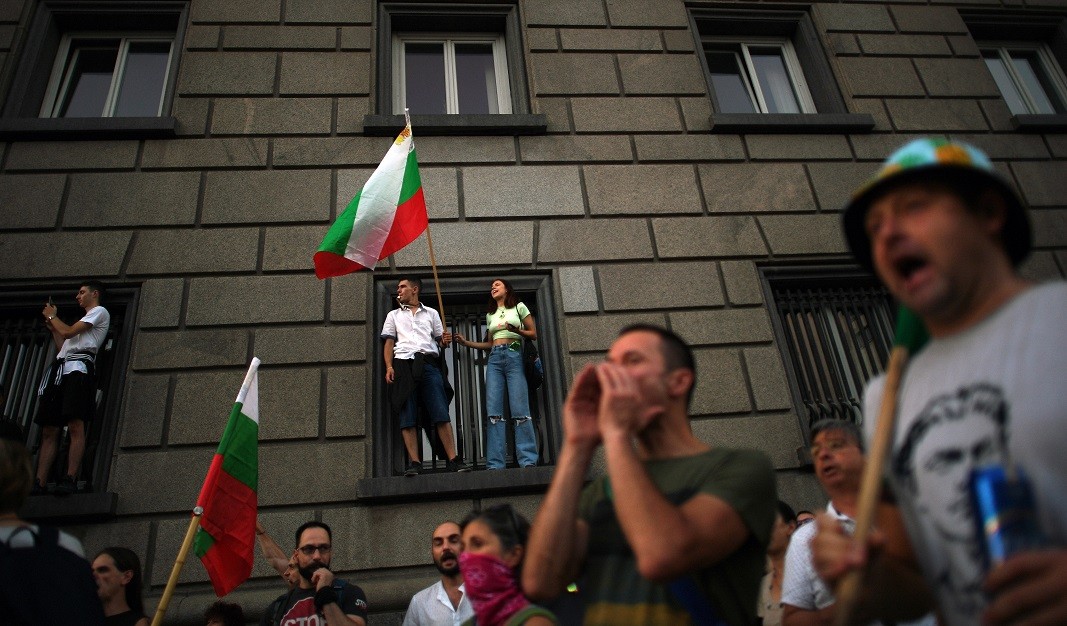The reluctance of the authorities to hear the voices of the protests, which have been demanding the resignation of the government and the prosecutor general for almost a month, fuels the protesters' determination to bring what has been started to a successful end. More and more blocked roads, more and more protesting cities, more and more demonstrating Bulgarians abroad - this is what the Bulgarian summer of 2020 looks like.
In the opinion of Prof. Antoaneta Hristova, political psychologist, the protest has an unstructured character, as the people from the squares do not point to an affiliation to a unified political formation.
"We have two scenarios of how the situation will develop," she told BNR. “One is the resignation of the cabinet and the transition to a caretaker government formed by President Rumen Radev. But this option is almost ruled out because public distrust of the institutions as a whole has been created. The second option is to hold a dialogue with the protesters and partially comply with their demands until the regular parliamentary elections are held, which seem to make sense from the point of view of a well-established democracy."
Although it made some ministerial reshuffles and announced some social measures, the government has not succeeded in softening its tone nor has it entered into a dialogue with the protesters. In such an electrified situation, not only young people but also the whole of society is politicized and this is dictated by the feeling of injustice, said Kaloyan Velchev, a political scientist and author at the youth platform Anblock.

"From this point of view, young people are not more special," he said in an interview with BNR. “We are defined as the vanguard of the protest, because we are something new in it and I believe that the politicization of young people can give a positive result. When most of us have socialized, this has happened in an environment that has been extremely hostile to politics and how it is done. That is why it is normal for most of us to stay away from it. But it is this hope, which is currently being born in the squares, that can still lead many young people to enter the political struggle to fight and stand up for their ideas, as they do in the protests."
In 2013, when the most recent mass protests took place Bulgaria against the government of Plamen Oresharski, renowned Bulgarian writer Vladimir Zarev described the popular uprising in his novel "Eagle’s Bridge". "Unfortunately, the protests created the illusion that a civil society has finally been built in Bulgaria to curb the hysterical and selfish government," the novelist said at the time. And has anything changed since then?
"GERB has had full power for ten years, which the prime minister has turned into sole governance," the writer said, talking to BNR. “Boyko Borissov solves all problems, but, unfortunately, the state machine does not work, our society is rotten, funds are distributed to individual oligarchs, and the biggest problem - corruption, remains. The huge passion of those in power to build highways is explained by the fact that huge funds from Europe are poured into them, as well as people's money. This is the easiest way to steal, but in order to prove the thefts, there must be a fair prosecutor's office, not a selective one. A real civil society is also essential.”
The protests are not so much social as they aim to reach a single concept for saving of the whole nation, Vladimir Zarev adds. He hopes that the unification of civil society and the eradication of the "hysterical selfishness of political parties and oligarchs" will be materialized by the young people from the squares who will one day become part of the government.
Compiled by Diana Tsankova/ Krassimir Martinov
English Rossitsa Petcova
Photos: EPA/BGNESRomanian police and military personnel worked as mercenaries in Congo According to a report by the Romanian Ministry of the Interior, 11 of its employees worked as mercenaries in Congo while on sick leave, Digi24 reported. The Ministry..
Protesting Serbian students to cycle 1,300km to Strasbourg A group of 80 protesting students and other people from four Serbian universities – in Novi Sad, Belgrade, Niš and Kragujevac started cycling from the campus of..
Protests in Turkey continue after Istanbul mayor's arrest Mass protests in Turkey continue after Istanbul mayor Ekrem İmamoğlu was arrested on March 19. Nearly 1,900 people have been detained for participating in the..

+359 2 9336 661
